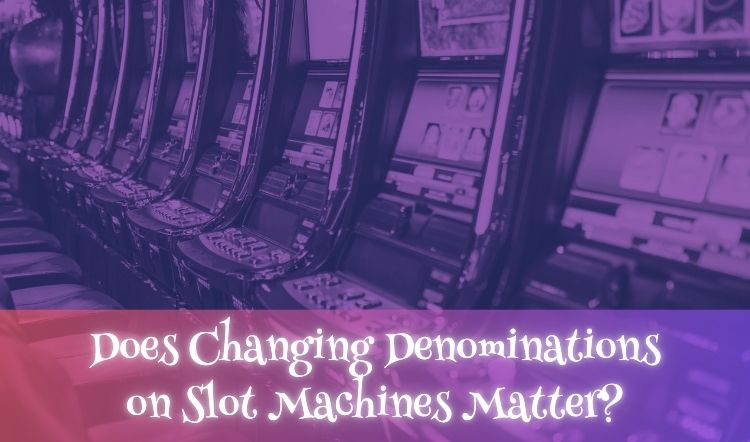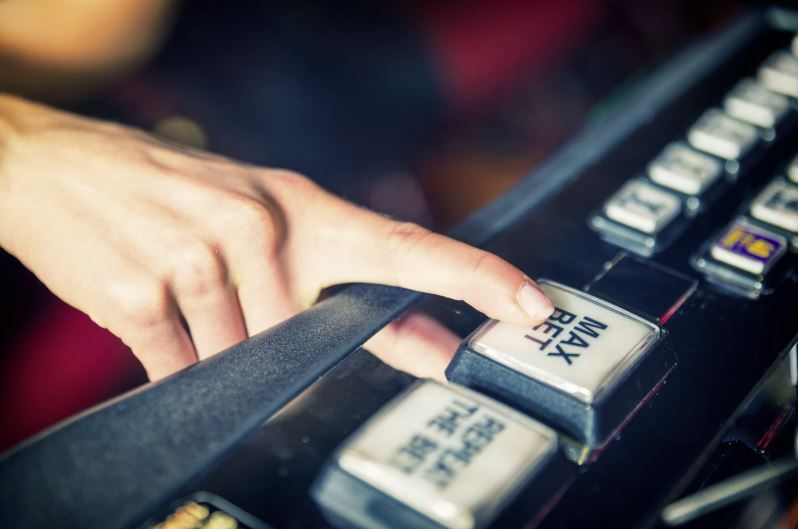
If you’ve ever played a slot game and noticed options to change the stake or denomination, you might have wondered whether this affects how the game works. Do higher bets improve your chances? Do they unlock extra features? And how does the game decide when to pay out?
This blog answers these questions in simple, beginner-friendly terms. It explains how betting amounts relate to potential outcomes, what affects your chances of winning, and why it’s important to understand how slot games operate—especially if you're new to playing online or in a casino.
Does Changing the Denomination Change The Odds?
Every regulated slot game in the UK uses a Random Number Generator (RNG). This is a computer programme that selects outcomes randomly and independently for each spin. The result of one spin has no effect on the next, and your chosen stake does not influence the outcome either.
Some games also display an RTP (Return to Player) percentage. This figure shows the expected long-term return of the game, usually stated as a percentage. For example, a slot with a 95% RTP may return £95 of every £100 wagered, over a large number of spins. It's a theoretical average, not a prediction of what you personally might get back in one session.
Changing the denomination doesn’t alter how the RNG works. Some slot games may have different versions at different RTP settings, which is why it can be worth checking the information screen on the slot before playing. However, your bet amount on its own does not influence the odds of a potential win on any given spin.
Is It Better To Bet Higher Denomination?
Betting more money per spin means you're risking more on each round. This can increase potential payouts, but also increases potential losses. For example, if a particular game pays out 10 times your stake for a winning combination, that’s £2 if you’re betting £0.20 — but £20 if you’re betting £2. The return is bigger, but so is the risk.
Some slot games offer features like bonus rounds or jackpots, and in certain games, these may only be available if you meet a minimum stake requirement. This will usually be explained in the game’s rules or paytable. It may be worth checking this if you’re aiming for a specific feature.
Playing with higher stakes can also result in quicker gameplay. If you’re betting £2 per spin, a £20 balance will only give you 10 spins. A £0.20 stake would allow for 100 spins instead. This affects the pace and length of your session.
Whether higher denomination betting is better depends on what you're looking for—whether that’s a longer playing session, the possibility of triggering certain features, or potentially larger payouts. There is no one-size-fits-all answer.
Does It Matter How Much You Bet On a Slot Machine?
The amount you bet per spin does affect your potential outcomes, but not your chances of winning. It influences how much you could gain or lose on any individual result. 
For example, if a slot game pays out 5x your stake for a particular symbol combination, then your possible return depends on what you bet. Betting £1 could return £5, while betting £0.10 could return £0.50.
Some slot games calculate wins based on multipliers of your bet size. This means your potential winnings will scale up or down in direct relation to how much you're wagering. In some slots, placing a low stake, may limit access to certain features or jackpots.
Smaller stakes can stretch your bankroll further and potentially make the game last longer. Larger stakes reduce the number of spins you can afford, but increase the amount you stand to win—or lose—on each spin.
Finding a comfortable stake that matches your budget and expectations is key. Whether you prefer longer sessions, or the possibility of bigger payouts, it can be useful to understand how your bet size impacts the overall experience.
How Do Slot Machines Decide When To Pay Out?
Slot machines do not decide to pay out based on how long you’ve played, how much you’ve bet, or whether you’ve won recently. Every outcome is determined by an RNG, as explained earlier.
The RNG generates thousands of number combinations every second, even when you’re not spinning. When you press the spin button, the RNG picks a value at that exact moment. That value corresponds to a specific outcome on the reels.
This system means there’s no pattern to when, or if, any wins occur, and no way to predict the result. It doesn’t matter if the machine has paid out recently or hasn’t paid in a while—the next spin is still random.
Understanding this can help avoid common misconceptions. There’s no “strategy” or betting system that guarantees wins, because slot games are random. Wins can happen at any time, but they can also not occur for many spins in a row.
If you’re playing for entertainment, set a clear budget and stick to it. Use safer gambling tools offered by UK-licensed operators, like deposit limits, loss limits, reality checks, and self-exclusion options if you feel you need a break.
*All values (Bet Levels, Maximum Wins etc.) mentioned in relation to these slot games are subject to change at any time. Game features mentioned may not be available in some jurisdictions.
**The information provided in this blog is intended for educational purposes and should not be construed as betting advice or a guarantee of success. Always gamble responsibly.
